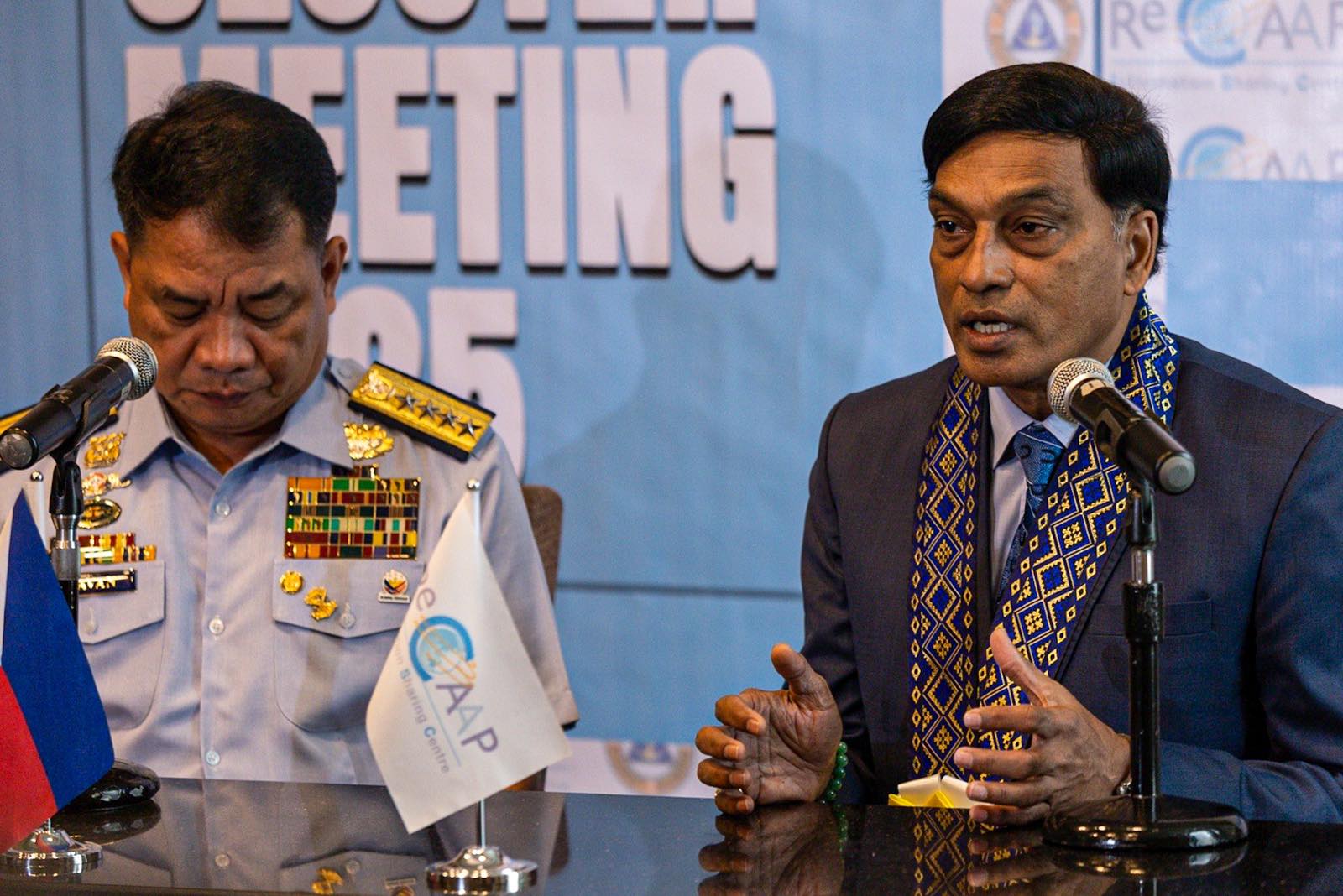PH hosts regional meet to combat piracy, armed robbery against ships in Asia

A three-day cluster meeting of an international alliance focused on addressing the threat of piracy and armed robbery against ships in Asia kicked off in Manila on Tuesday, Jan. 21.
The Philippine Coast Guard (PCG) is supporting the Regional Cooperation Agreement on Combating Piracy and Armed Robbery against Ships in Asia Information Sharing Centre (ReCAAP ISC) to be held until Jan. 23.
“This event is a milestone for us in the law enforcement sector. This is perhaps an affirmation that the government is on the right path forward to better secure the major highway of trade for the benefit not only of the Filipinos but all the regions and the world,” PCG Commandant, Adm. Ronnie Gil Gavan said.
Delegates from the ReCAAP ISC based in Singapore and ReCAAP Focal Point Governors from four Contracting Parties, including Cambodia, China, Vietnam, and Thailand, are joining the event.
Meanwhile, representatives from the PCG, Philippine Ports Authority (PPA), Philippine shipping industry stakeholders, and regional law enforcement agencies, such as the Malaysia Maritime Enforcement Agency (MMEA) and Indonesia Coast Guard (BAKAMLA), will also be present.
In the Philippines, Gavan said the threat of piracy and armed robbery against ships has been greatly diminished due to the neutralization of the terror Abu Sayyaf Group (ASG).
The ASG had been notorious for their kidnap for ransom, trafficking, and other illegal activities in the Sulu-Celebes Sea, a tri-border area between the Philippines, Malaysia and Indonesia.
Gavan stressed that a whole-of-nation approach was the key to the government’s success when it comes to combatting ASG’s illegal maritime activities in the area.
“I think it was the national action, the concerted effort of agencies consisting the armed forces, coast guard, police even the local government units, the industry, the whole gamut of stakeholders comprising the maritime industry,” the coast guard chief said.
“No Abu Sayyaf so no pirates. Good social stability in coastal communities means no youth can be enticed to do criminal acts,” he added.
But on a regional level, the incidents of piracy and armed robbery against ships in Asia was seeing a rising trend, based on the monitoring of the ReCAAP ISC.
While the incidents went down from 97 in 2020 to 82 in 2021, the succeeding years showed that they consistently went up since then: 84 incidents in 2022, 101 in 2023, and 107 in 2024.
From 2023 to 2024, there was a six percent increase in the number of piracies and armed robbery against ships in Asia.
In 2024, majority of the incidents occurred in the Straits of Malacca and Singapore with 62; followed by Indonesia with 22; Bangladesh with 13; and Philippines with three. There were two incidents apiece in India, South China Sea, and Vietnam; and one in Malaysia.
Mr. Krishnaswamy Natarajan, executive director of ReCAAP ISC, said the Philippines has been a leader in Asia when it comes to regional efforts to ensure the safety of vessels passing through key trade routes.
“This region of Sulu-Celebes witnesses almost 14,000 to 15,000 ships transiting the Indo-Pacific region per year. The collective effort that they have made in neutralizing the anti-social elements has enabled the maritime community to travel safely and peacefully,” he said.
Gavan echoed this, stressing that the staging of the regional meet was a good metric that the government has “succeeded” in improving the quality of life of the Filipinos.
"Piracy remains a function of economics, they say. So this is a metric that the government has actually succeeded in improving the quality of life of our people even in the south," he said.
During the top-level meet, the ReCAAP Focal Point Governors will discuss countermeasures on sea robbery in their respective country’s ports and anchorages. They will also deliberate the impact of maritime terrorism and emerging maritime threats on the safety of crew and cargo.
Gavan said that by sharing intelligence and best practices, the ReCAAP ISC will develop unified strategies to enhance the safety of shipping routes in Asia, address current challenges, and prevent future incidents.